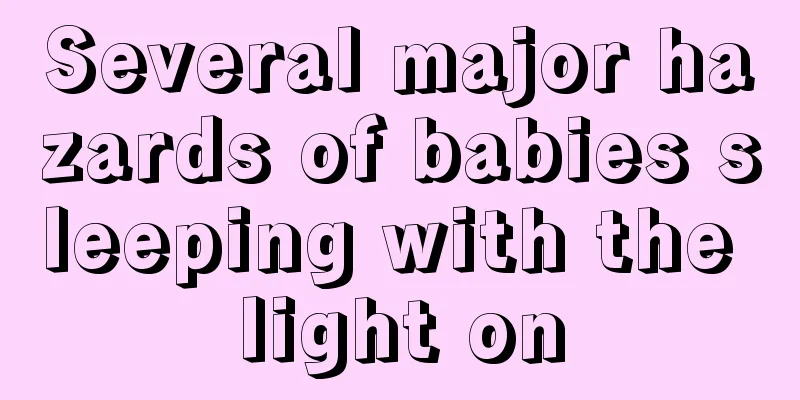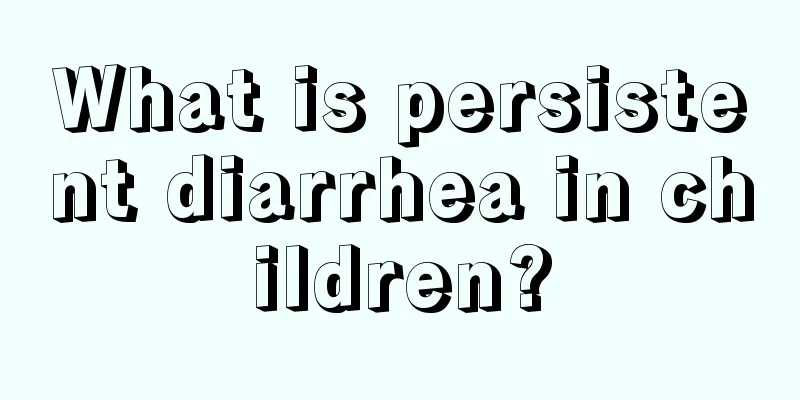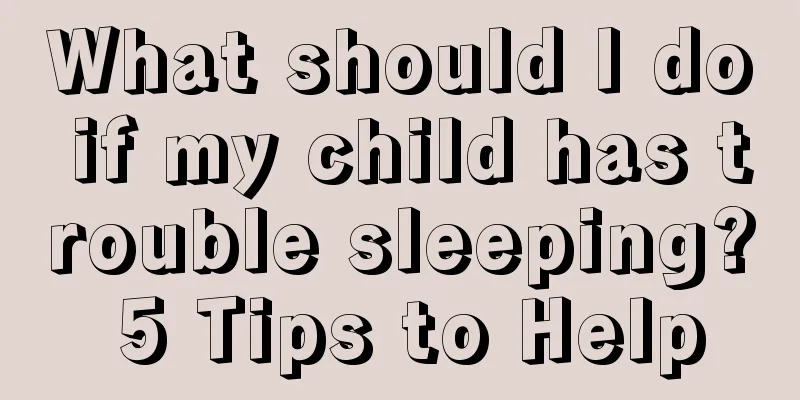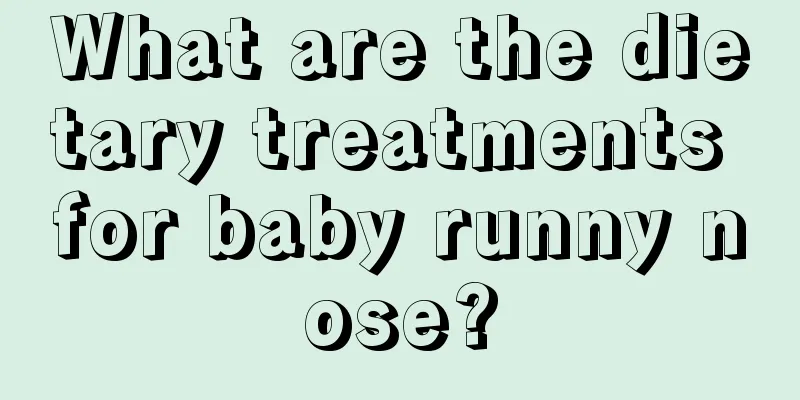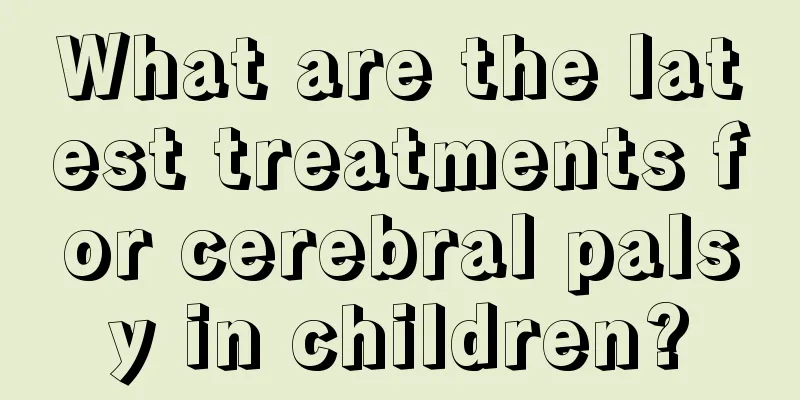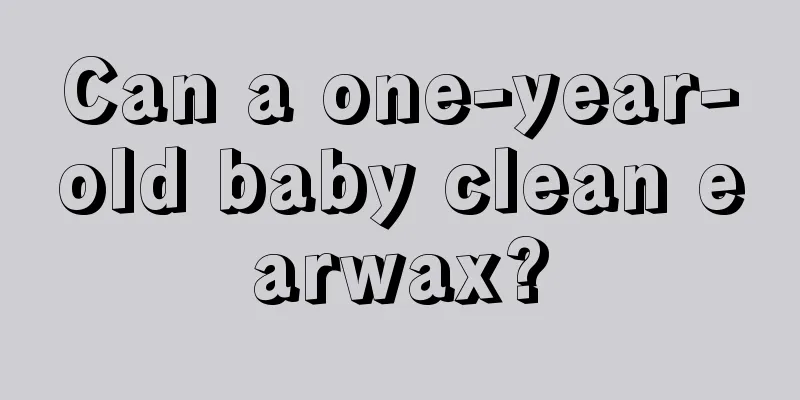What should I do if my baby has a high fever? Try these methods to reduce fever!
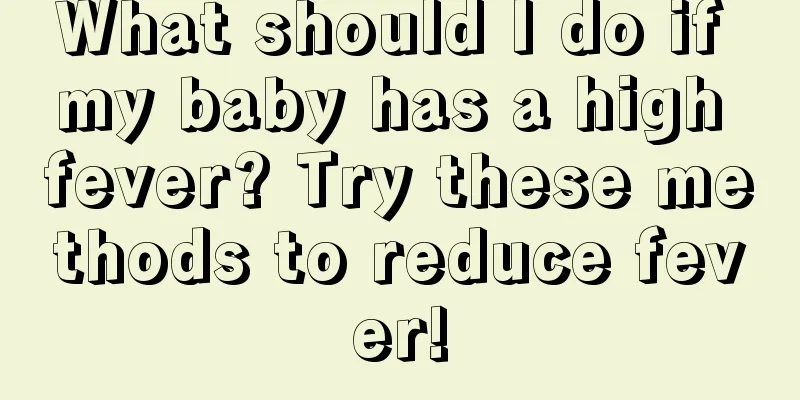
|
For all parents, a baby with a fever is the most worrying thing. They worry that the baby’s brain will be damaged by the fever, and they also worry that the aggressive fever-reducing methods will harm the baby’s health. Generally speaking, when a baby has a high fever, you must pay close attention to him, take active physical measures to reduce fever, and take antipyretic drugs when necessary. As long as the baby is properly cared for, he will recover soon. What should I do if my baby has a fever? Body temperature itself is not the real most critical method to observe childhood illness. For adults, the level of body temperature usually reflects the severity of the illness. This is not the case with children, as their bodies' temperature control is not yet perfect. Some children have a fever of up to 40°C when they are infected with mild diseases, but only 38.3°C when they are infected with more serious diseases. When a child has a fever, parents should observe his complexion, expression and actions. A child with a temperature of 100.5°C but a pale, unnaturally quiet complexion may be sicker than a child with a temperature of 100.5°C but still running around the house making a fuss. If a child with a fever shows the following symptoms, see a doctor regardless of the temperature. 1. Crying non-stop, no matter who comforts you, it is useless 2. It is difficult to wake up. 3. If someone tries to touch or move the child, he will cry. 4. The neck is stiff and inflexible. 5. Uncontrollable twitching or spasms in the arms, thighs, or other parts of the body. 6. Confusion and strange behavior (seeing or hearing things that are not there, saying strange things or behaving abnormally). 7. There are noises when breathing. 8. Unable to swallow any food and drooling constantly. 9. Purple spots appear on the skin. 10. Skin color is grayish white or dark blue. 11. The pulse is weak but fast and rapid (a child under 1 year old has a pulse of more than 160 beats per minute; a child over 1 year old has a pulse of more than 120 beats per minute). 12. Burning or pain when urinating. 13. There is blood in the stool during diarrhea. What method can reduce fever quickly? How can parents reduce the baby's fever at home before taking the baby to the doctor? The correct way to reduce fever should be: 1. Maintain good air circulation in your home: If your home has air conditioning, maintain the room temperature between 25-27℃. You can place the child in an air-conditioned room or blow an electric fan around him to slowly lower his body temperature, which will make the child feel more comfortable. But if the limbs are cold and the patient is shivering, it means that the patient needs to be warmed up, so a blanket should be added to cover the patient. 2. Take off excess clothing: If your baby's limbs, hands and feet are warm and he is sweating all over, it means he needs to dissipate heat and he can wear less clothes. 3. Warm water bath: Undress the baby and rub the whole body with warm water (37°C) and a towel. This will dilate the blood vessels in the baby's skin and release body heat. In addition, when water vapor evaporates from the body surface, it will also absorb body heat. 4. Use a cooling patch: It helps to dissipate heat, but it is not recommended for younger children because it is difficult for them to turn their bodies and the ice pillow can easily cause local overcooling or hypothermia. You can also use a cooling patch. When the water in the gelatinous substance of the cooling patch evaporates, it can take away the heat and will not cause excessive cooling. 5. Drink plenty of water: To help sweating and prevent dehydration. Water has the function of regulating temperature, which can lower body temperature and replenish water lost in the baby's body. 6. Use antipyretics: When the core temperature (rectal temperature or ear temperature) of an infant or young child exceeds 38.5℃, antipyretic solutions or suppositories can be used appropriately. |
<<: How to prevent baby from bloating when drinking milk?
>>: How to treat oral herpes in babies?
Recommend
What are the causes of sleep convulsions in children?
Sleep convulsions are currently the most common s...
What to do if your child's mouth is swollen
Children are relatively young, so they are very n...
What are the developmental standards for a two-year-old baby?
What are the developmental standards for a two-ye...
Can newborns undergo brain CT scans?
Modern medicine can use many medical methods to d...
Why do children have precocious puberty?
In recent years, precocious puberty has become a ...
Does phimosis adhesion in children need treatment?
Phimosis in children actually means that the glan...
The 7-year-old girl's face has become much darker in the past week
Some children always have problems, which are oft...
What to do if your child keeps vomiting at night
If the child's stomach is not good, vomiting ...
Can epilepsy in children be cured?
Epilepsy is a very common disease in daily life. ...
What is the cause of hematuria in children?
Children are the hope of every family. They are t...
Do I still need to take folic acid after three months?
Folic acid is very important for pregnant women, ...
What is the cause of white ringworm on the face of a 4-year-old child?
Although children do not care much about their ap...
Feeding and care of newborns
Many parents are first-time parents, so they alwa...
Children's nose ulcer
When children have nasal sores due to inflamed no...
White spots in infants' mouths
If there are white spots in the mouth of infants ...

